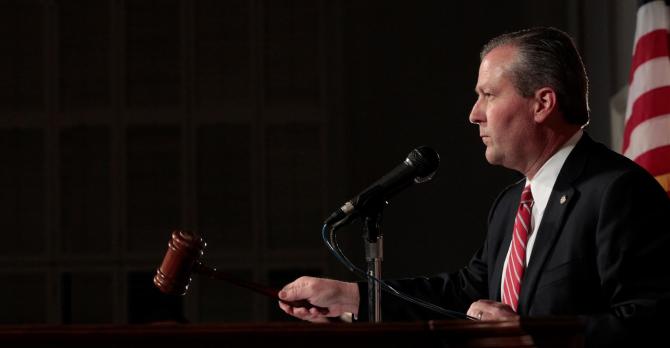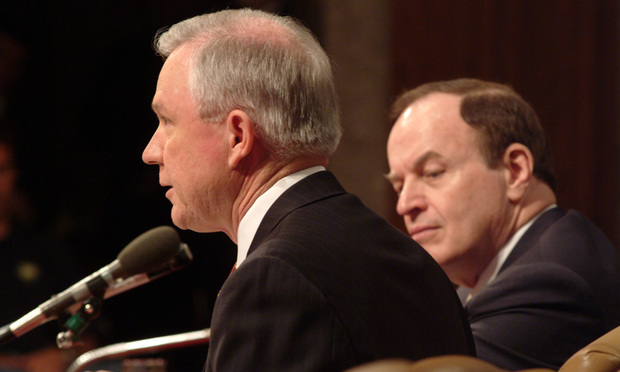Background
Amendment 2 would allow for an increase of up to $50 million in the amount authorized for general obligation bonds for the purpose of construction and maintenance of Alabama National Guard armories. The amendment was sponsored in the Legislature by Senator Tom Whatley (R-Auburn). The bill passed the Senate by a vote of 23-7 and the House by a vote of 93-1 during the 2013 legislative session.
The federal government provides for matching of state spending on National Guard armories according to the following ratios:
- when the facility is state-owned and located on state land, maintenance and utility costs are split 50/50 with the federal government;
- when the facility is state-owned and located on federal land, the maintenance and utility costs are split 75/25 with the state
paying 25% of the cost; - when a facility is a “logistics facility”, the federal government pays 100% of the cost for
the facility; - federally-owned facilities located on federal lands and those that serve training missions are funded 10% by the federal government, except when the building is used as an armory;
- armories constructed with federal funds and located on federal land are funded 75/25 by the federal government for maintenance and utilities costs.
Issue Snapshot
- The amendment would allow the state to increase its bond debt by $50 million to pay for the repairs and maintenance of state National Guard armories. There is an opportunity to obtain matching federal funds.
- The debt service on this new bond would be paid by the Alabama Trust Fund, the state's savings account for oil and gas revenues that has been depleted in recent years.
Purpose of the Amendment
Proponents of the amendment have pointed to the need to rebuild or repair a number of outdated armories located throughout the state. Senator Gerald Dial (R-Lineville), a strong supporter of the amendment, has explained that this provision would allow the state to take advantage of federal matching funds that have been left on the table in the past.
Dial also noted that the poor condition of some state armories could lead to having them closed. The U.S. Department of Defense continues to fight Congress for another round of base realignment and closures (BRAC). The possibility of more closures in coming years exacerbates concerns that neglected Alabama armories would be prime targets for closure. The closing of an armory would likely have a negative impact on the area’s economy, according to Senator Whatley, who has said that the amendment is based in economic development.
While opponents acknowledge the need for improvements at some Alabama armories, there is great consternation with increasing the state’s debt through this bond issue. Existing provisions in the Alabama Constitution already give the state bond authority of up to
$750 million; this amendment would raise that by $50 million. The amendment provides that the debt service of the bond will be paid from the Alabama Trust Fund(ATF), the fund initially set up in 1985 as a savings account to capture all of the state’s oil and gas revenues. The ATF now receives only 32% of total revenues. This is notable because the state’s General Fund – the fund that pays for nearly every function of state government other than education – receives a portion of the ATF’s income each year. As more money is diverted from the
ATF, there is less income from the corpus and thus, less money is available to the General Fund and city and local governments who also receive a percentage of trust fund income.
The amendment requires that the bonds would be paid over a 20-year period. The Legislative Fiscal Office (LFO) estimates that the assets of the ATF would be reduced by $3.7 million each year for 20 years to pay the debt service on the additional bonds. Additionally, the amendment provides that if this increased debt service cannot be covered by the Capital Improvement Trust Fund, that already receives 28% of oil and gas revenues, then the shortfall will be covered by taking additional money from the ATF.
Courtesy of the Alabama Policy Institute




